A StIRRRD team has been in Seluma and Bengkulu City in Bengkulu Province, as part of the ongoing implementation of the BPBD-led DRR actions plans, as the project moves from phase 1 (plan development and training) to phase 2 (implementation and monitoring). A small ceremony celebrating the collaboration and support of the districts during phase 1 was held, with a certificate and token of appreciation presented to the district heads. The team also met the parliament of each district to discuss on-going support of the BPBD disaster risk reduction measures.
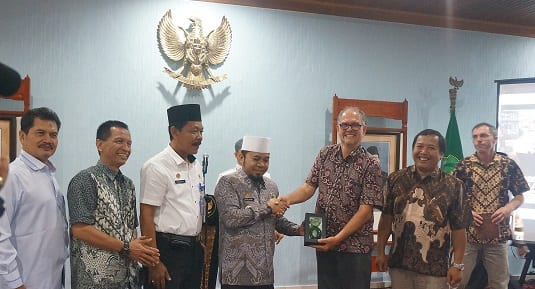
The team met with the BPBD, and other government agencies, in separate meetings, to discuss progress, reaffirm commitment to the Action Plan Initiatives, and discuss implementation options.
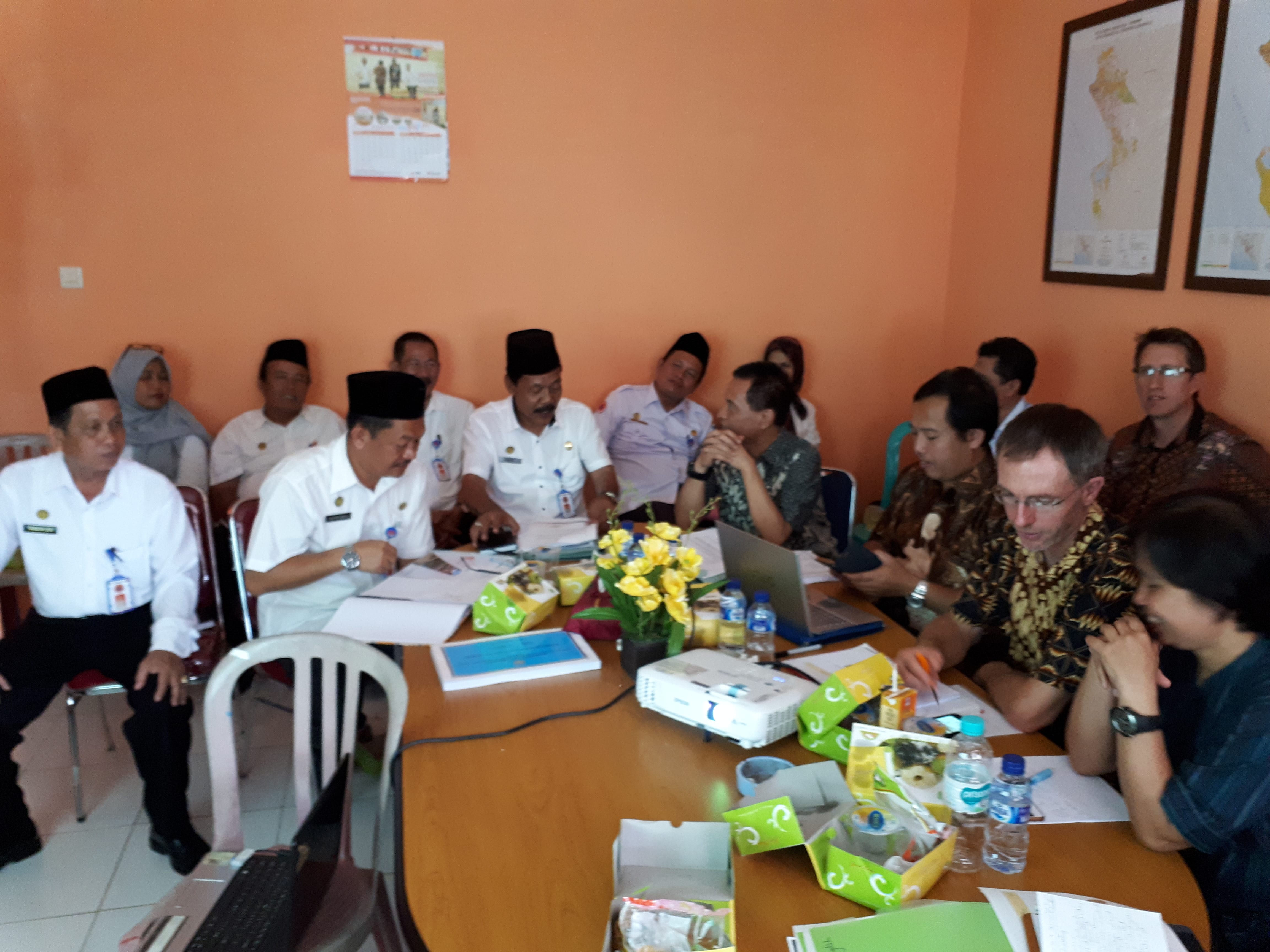
In October 2016, Bengkulu City BPBD implemented a tsunami “Blue Line” project and included it in an evacuation simulation for schools. Unfortunately, the contractor used a water-based paint and the line has quickly faded. However, the BPBD are committed and have budget to implement more blue lines along the coast, improve evacuation routes, involve the local communities to raise awareness and upgrade signage.
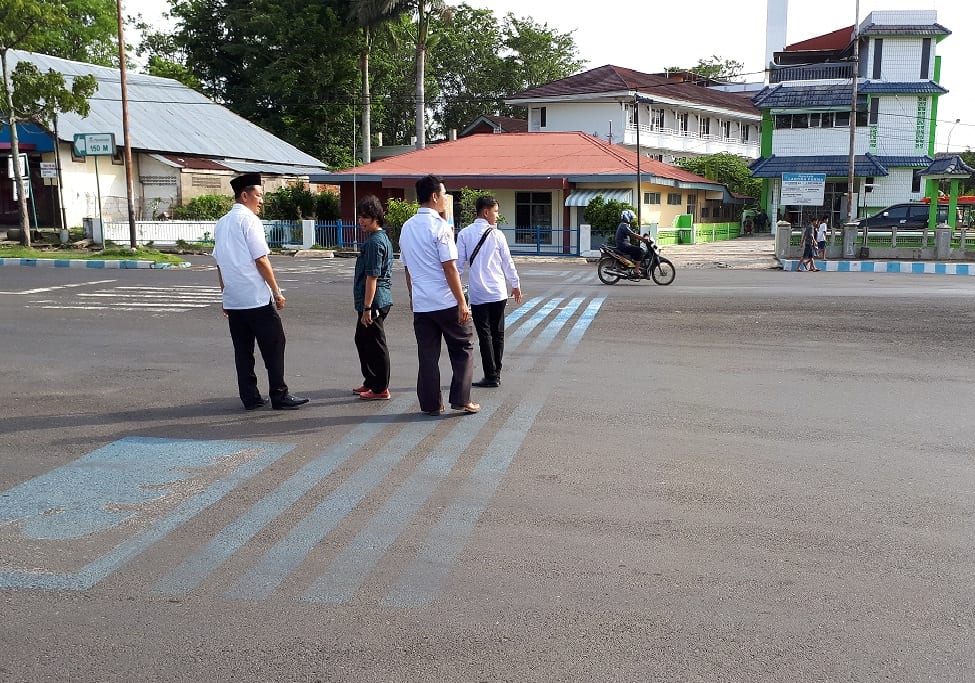
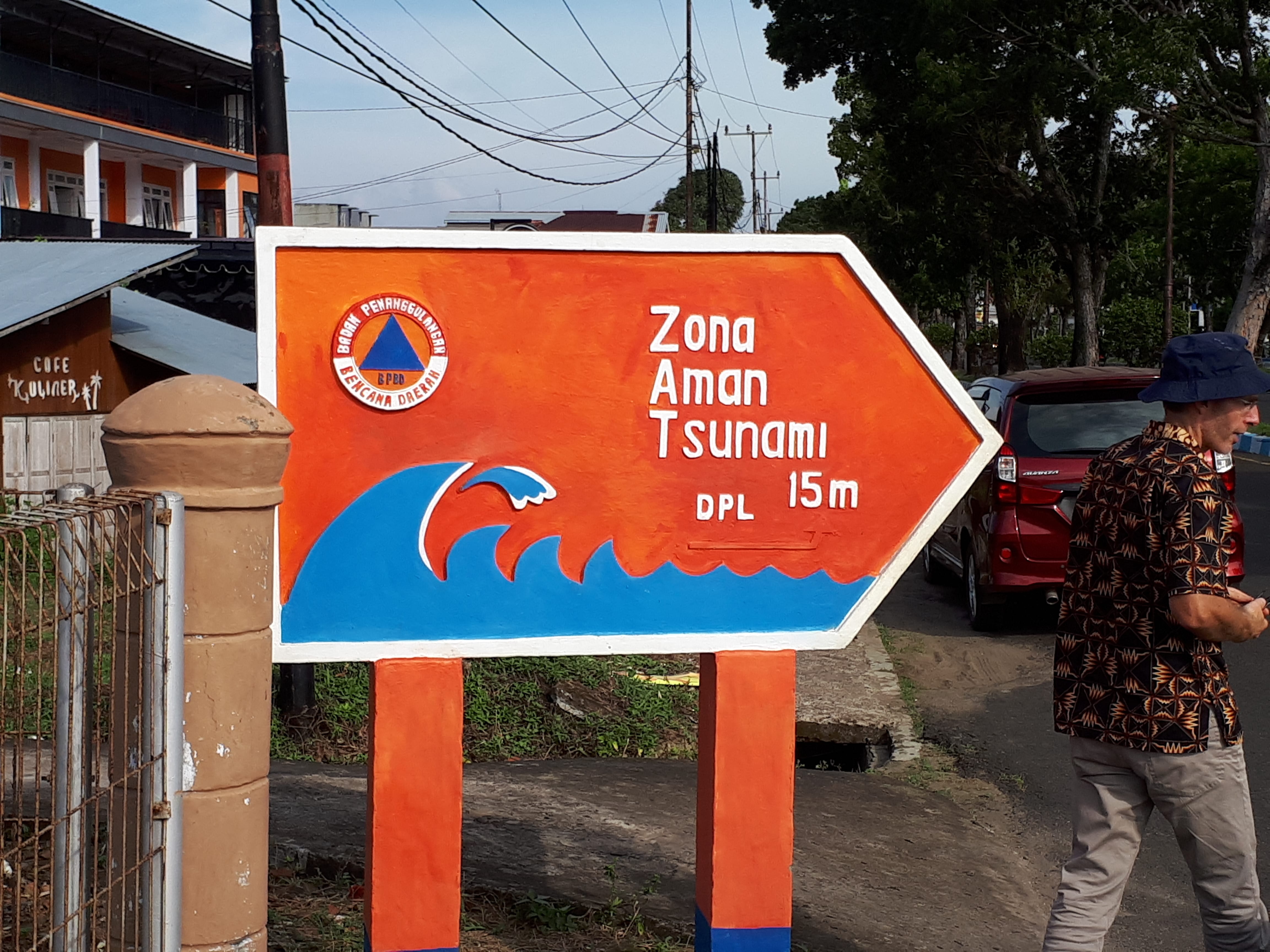
In Seluma the team met with the disaster volunteers of Rawa Indah village, where a vertical tsunami evacuation shelter has been constructed. Despite not yet officially taking control of the shelter, the locals are using it for weddings, mother’s groups and other social occasions and ceremonies. The community obviously value this structure, and are making some effort to keep it clean and tidy. For minimal cost, it would be possible to make this structure more suitable for community use. This part of the Seluma coastline is a flat broad plain, and the villages are susceptible to flooding, tsunami and storm surge events. The evacuation shelter may therefore also be useful during other disaster events.
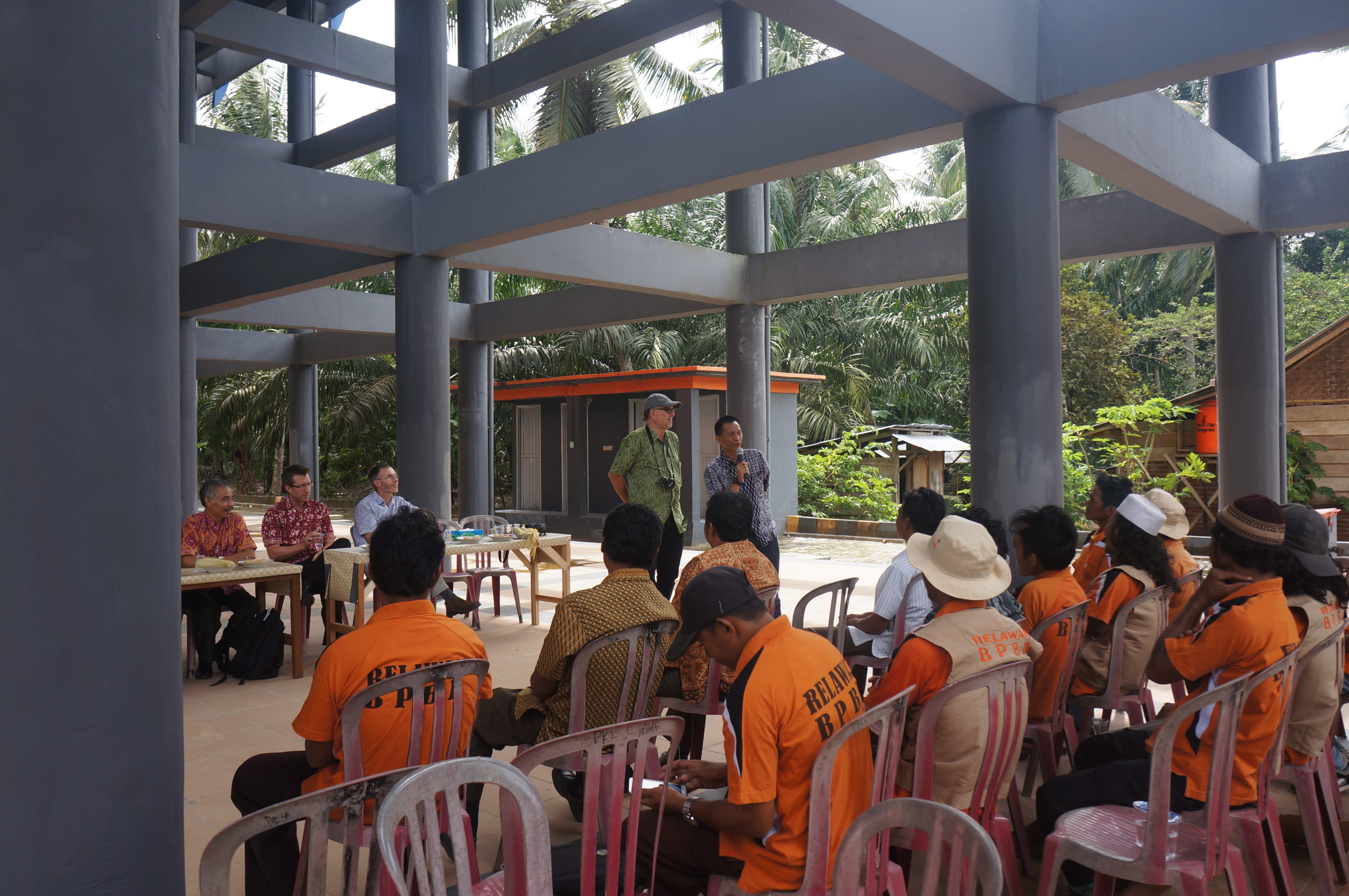
Seluma has limited resources but despite this, it is trying to implement its Action Plan, and will benefit greatly from the coaching and mentoring provided by the StIRRRD team over the next year or so to gain some momentum. In contrast, Kota Bengkulu has gathered momentum with a number of initiatives currently underway, and planned in the current financial year.
It is vital for the sustainability of the program that local universities are involved in providing expert advice as well as student resources as part of their community service. In both Seluma and Bengkulu City, the University of Bengkulu (UNIB), particularly the Disaster Research Centre, is providing this key support role. A number of initiatives are likely to be led by, or involve UNIB, including development of local building clinics, hazard education in schools and tsunami education and socialisation. UNIB will also be conducting geophysical and geotechnical research projects that aim to improve understanding of natural hazards in the region.
